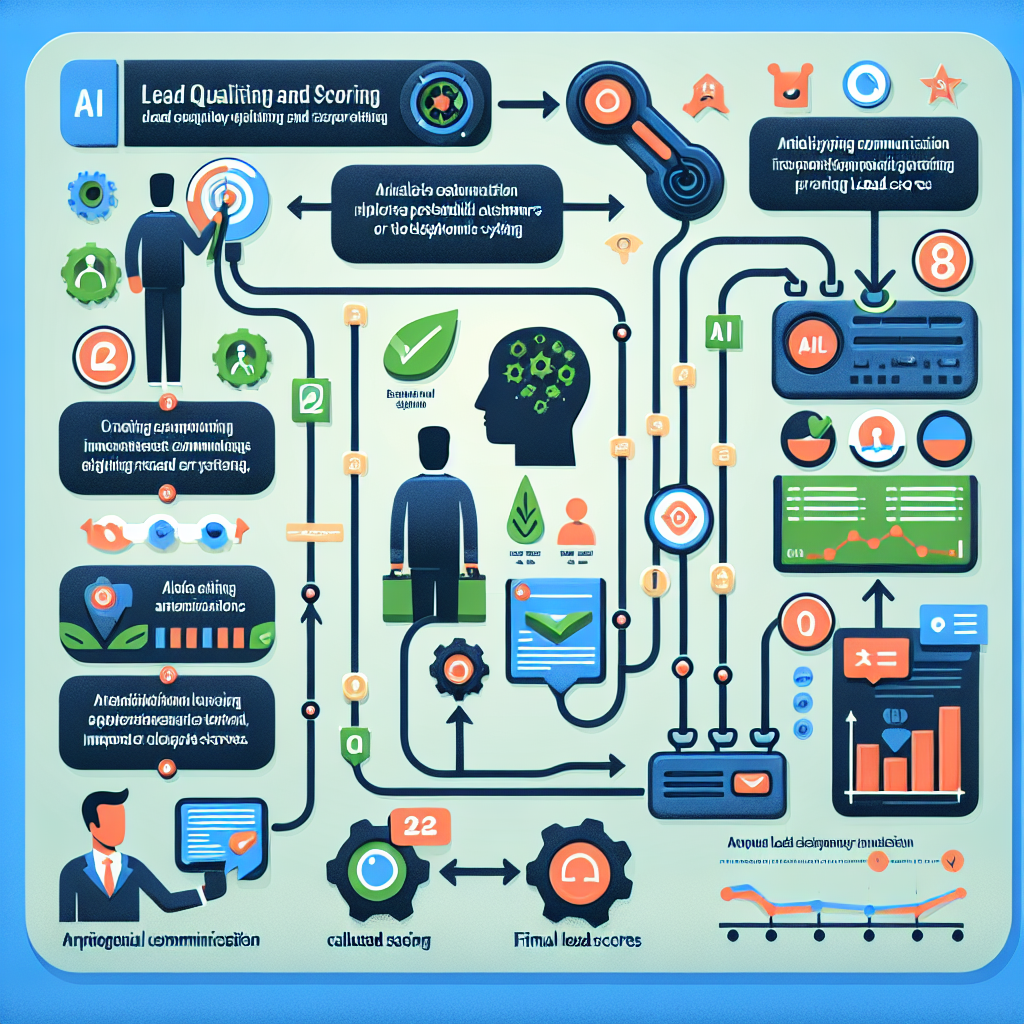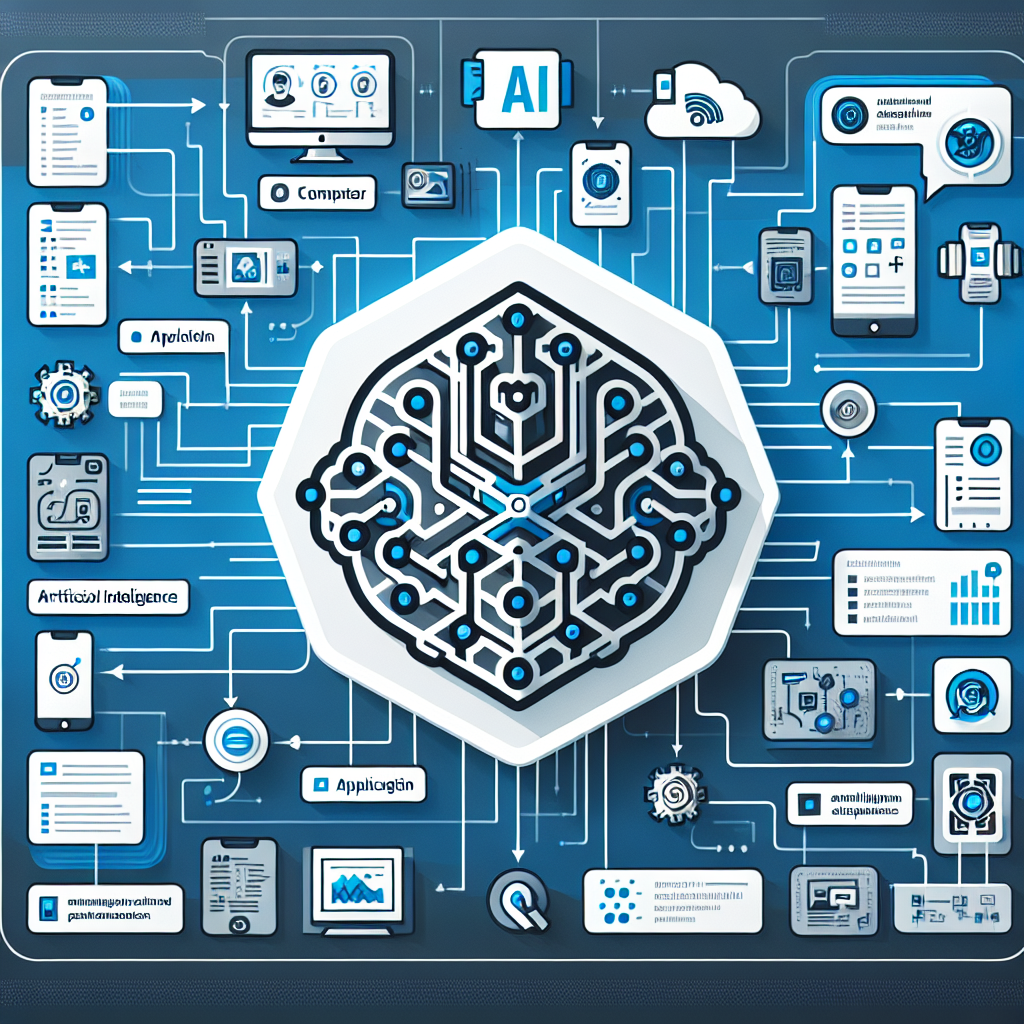
Over the past decade, Artificial Intelligence (AI) technology has gained widespread acclaim for its ability to significantly enhance multiple operations across various industries. In the field of sales and marketing, AI has proven its potential in automating and optimizing lead qualification and scoring, particularly through phone-based systems.

Lead qualification is a critical stage in the sales cycle that involves determining the readiness of potential customers (leads) to engage in the buying process. Traditionally, this process has been quite complex and time-consuming, requiring significant human involvement, subjective judgments, and manual data entry. However, with the introduction of AI technologies, professionals can now automate and accelerate this process, improving efficiency and precision.
Phone-based lead qualification systems leverage AI to analyze customer interactions, extract meaningful information, and accurately score leads. They utilize sophisticated AI algorithms and NLP (Natural Language Processing) techniques to decipher human language and conversation, thus inferring callers' buying intentions and qualifying them automatically. These systems can not only identify high-potential leads but also prioritize them, ensuring that sales teams can focus their efforts where they'll have the most impact.
With AI-powered phone systems, businesses can streamline lead qualification and scoring, enhance their customer engagement, and ultimately boost sales productivity. They can also gain valuable insights from the data these systems gather, thereby refining their sales strategies.
In the following sections, we will take a deeper dive into how exactly AI functions in these systems, the benefits they bring, and some examples of their application in the industry.
The convergence of machine learning and artificial intelligence (AI) technologies has transformed how businesses approach lead qualification and scoring. A significant game-changer has been the incorporation of AI in phone-based lead qualification systems. There are several essential AI capabilities responsible for this quantum leap in business strategy, including natural language processing (NLP), voice recognition, and behavioral analytics.
Natural Language Processing (NLP) is a cornerstone of AI-powered phone systems for lead qualification. NLP allows the system to understand and interact using human language, facilitating seamless communication between the software and the customer. It enables the system to understand a customer's needs, preferences, and motivations, thereby helping in accurate lead scoring. Advanced NLP features can also predict customer behavior based on previous interactions.
Voice recognition technology, another crucial pillar, helps these systems identify and interpret human speech. Incorporating voice recognition allows the system to identify the speaker and personalize the interaction, thus enhancing the customer experience. It can flag potential leads depending on speech patterns, tone, and other speaking traits. Voice biometrics can further secure customer interactions by verifying callers' identities.
The addition of behavioral analytics into the mix provides a more holistic approach towards lead qualification and scoring. This AI feature analyses the customer's actions and behavior during the interaction, allowing the system to draw deeper insights about their preferences and potential for conversion. Based on these insights, the system can adjust the lead scoring and qualification strategies, maximizing the chances of conversion and enhancing the return on investment.
In conclusion, the power of AI in phone-based lead qualification and scoring lies predominantly in its ability to genuinely understand and predict customer behavior and needs. As we move towards an increasingly digitized economy, these capabilities will only grow in importance and businesses must adapt to remain competitive.
AI has a vast and profound impact on various business sectors, with lead qualification and scoring being notably significant. Several companies worldwide have successfully managed to implement AI in their phone-based lead management systems. These real-life implementation success stories serve as a testament to how AI is revolutionising the business industry, transforming the old ways of disparately stored datasets into systematic, efficient, and less-time consuming methods.
One such example is IBM Watson, which has developed an AI-driven tool that integrates with call applications such as Zendesk. IBM's solution improved customer interaction by intelligently monitoring and directing calls to the appropriate agents, essentially improving lead qualifications. The system improved not only customer interaction but also customer satisfaction while decreasing drop-off rates.

Another company that was able to leverage AI in a similar fashion is Hilton Hotels. They launched an AI-powered virtual assistant named "Connie" to direct customer calls more effectively. With a more efficient system, Hilton's customer service improved significantly, outperforming their in-house call handling before the AI implementation.
Lastly, Amelia , a cognitive AI developed by IPsoft, has been successfully used by various sectors, including banking, healthcare, and retail. Amelia increased lead qualifications by using cognitive learning and language understanding abilities to detect customer needs and channel them to the right service executives or products.
In summary, these case studies demonstrate how AI-powered phone systems have achieved improved customer satisfaction and more efficient lead management. AI's growing influence is helping companies achieve greater heights, allowing them to redefine their tools and processes in an evolving digital landscape. Truly, AI is setting new standards for business operations everywhere.
In the context of digital marketing and sales, artificial intelligence (AI) has become increasingly pivotal, particularly in phone-based lead qualification and scoring. One of the key areas where AI holds significant potential is in its integration with Customer Relationship Management (CRM) systems.
Leveraging AI within your CRM can drastically improve the efficiency and precision of your lead scoring process. For instance, AI enables predictive analytics, a feature that empowers CRM systems to intelligently analyze patterns, trends, and behaviors from historical and real-time data to more accurately score and qualify leads. This leads to improved lead management, higher conversion rates, and enhances overall sales productivity, thanks to a more focused and prioritized approach.
Integrating AI with CRM isn't a task for the technologically faint-hearted. It involves the implementation of advanced AI algorithms and machine learning models within the CRM system. This process requires expert knowledge in AI, data science, and your CRM platform of choice. However, the effort is well worth it when considering the valuable insights and automated processes that result.
To ease this integration process, many CRM providers are now partnering with AI technology providers. Salesforce, for example, has built its own AI called Einstein into their CRM. Several others, like Microsoft Dynamics 365, have incorporated AI capabilities such as predictive lead scoring directly into their platform.
The interoperability of a CRM system integrated with AI ensures a seamless data flow, allowing a continuous stream of lead engagement and behaviour data to be captured and processed accurately. This combination also offers enhanced lead scoring accuracy, as AI can learn from historical data and real-time engagement to predict a lead’s likelihood to convert.
Data privacy is, of course, an essential factor to consider during this integration. Permission-based access, encryption, and secure data storage are crucial elements. Some CRM systems also include data anonymization techniques as part of their AI integration approach, ensuring compliance with privacy regulations like the GDPR and CCPA without compromising the quality of results.
AI integration with CRM systems is paving the way for enhanced phone-based lead qualification and scoring, driving efficiency and contributing significantly to business growth.
The rapid progression of Artificial Intelligence (AI) technologies is revolutionizing the way companies manage phone-based leads. Increasingly sophisticated algorithms are employed to identify, qualify, and score potential business prospects with unprecedented efficiency and accuracy, paving the way to a new era of customer relations and sales strategies.

One revolutionary AI advancement is the development of sentiment analysis algorithms, deployed to dissect and understand the emotional tone in human speech. This technology enables businesses to gauge their clients' satisfaction levels, their inclinations towards certain products or services, and their potential willingness to engage in future business. Not only does this offer a powerful tool for personalised marketing strategies, but it contributes to however a company shapes its customer-centric approach.
Industry experts predict the rise of AI-guided autonomous call centers, in the foreseeable future. These centers will be powered by AI technology capable of processing vast amounts of data in real-time, allowing them to conduct and manage calls efficiently. The potential economical and operational benefits can be significant, particularly for larger corporations handling high volumes of customer interactions.
Furthermore, the development of AI algorithms capable of continuous learning will significantly impact phone-based lead qualification and scoring. These self-improving models, known as Reinforcement Learning algorithms, will be able to refine their strategies over time, adapt to new situations, and maintain their effectiveness even as market trends shift.
As AI becomes more integrated into these connectivity-centric sectors, businesses stand to gain invaluable insights into customer behavior and preferences, whilst saving considerable resources and ensuring more nuanced interaction with their prospects. As for customers, they will witness more personalized and immersive customer service experiences.
Indeed, the advancements in AI in phone-based lead qualification and scoring mark an exciting landmark in the convergence of technology and business, promising unprecedented opportunities for growth, improvement, and evolution.
Start your free trial for My AI Front Desk today, it takes minutes to setup!








